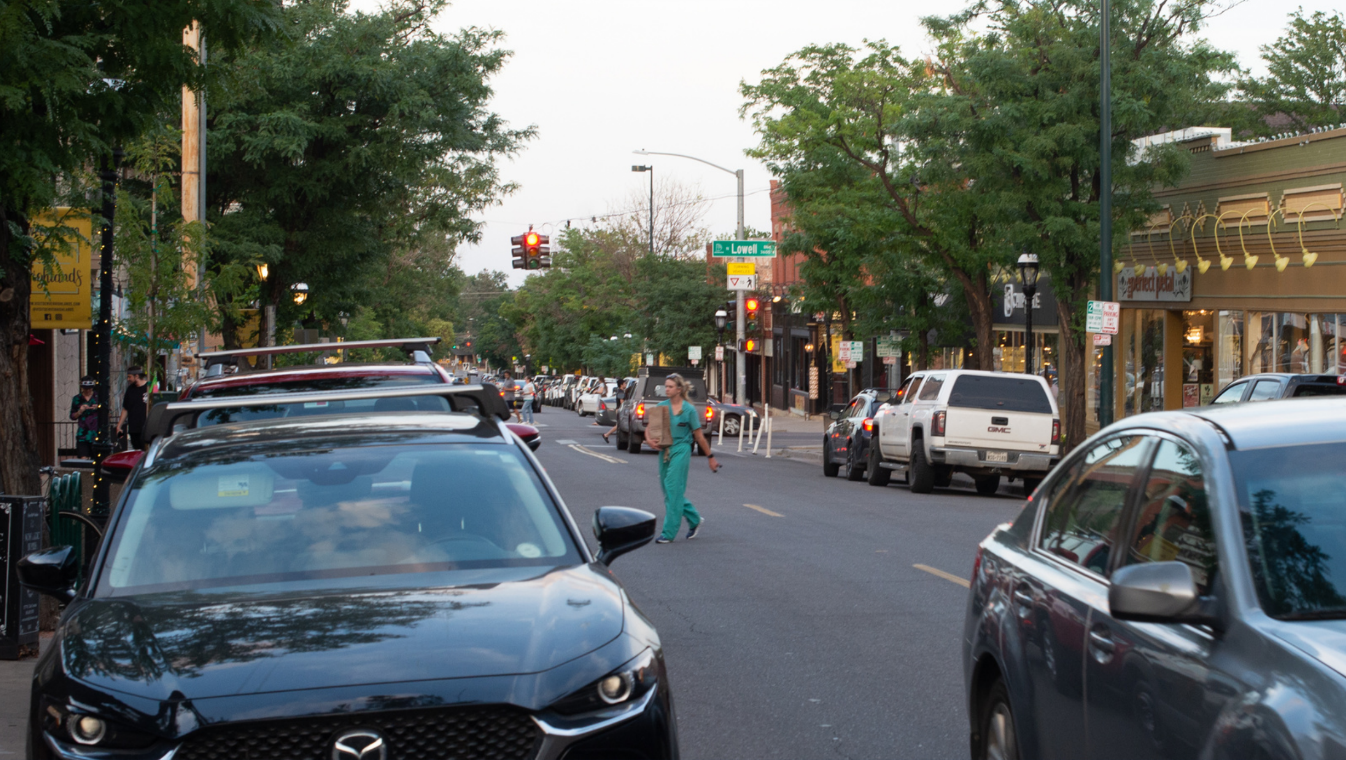
Denver City Council

Audio By Carbonatix
Denver City Council voted 10-3 on January 30 to decriminalize jaywalking, adding the Mile High City to the growing list of jurisdictions that are revisiting their jaywalking laws.
“It’s a natural, safe way to cross the street. You’re sitting there, you don’t see a car for a half mile. It’s normal to want to cross the street even if you don’t have a walk cycle,” says Allen Cowgill of the Denver Bicycle Lobby, one of the main proponents of the ordinance.
Council President Jamie Torres and councilmembers Candi CdeBaca and Jolon Clark put forward the measure, which brings Denver’s stricter jaywalking law in line with the looser Colorado jaywalking statute. In particular, the ordinance changes allow people who are between two intersections with stop signs – or an intersection with a stop sign and an intersection with a stoplight – to cross the street without fear of being cited. The law will still prohibit pedestrians from jaywalking when they’re between two traffic lights; in those scenarios, they need to pick one of the crosswalks.
When crossing outside of a crosswalk, Denver pedestrians will still need to yield the right-of-way to vehicles in the roadway. Additionally, no one will be able to simply run across highways.
Until now, Denver law has prohibited crossing any roadway, with the exception of a local neighborhood street, outside of the crosswalk. Jaywalking citations – which range from criminal to municipal to traffic offenses – carry the possibility of a $65 to $95 fine. Those who receive a criminal or a municipal jaywalking citation need to appear in court, while a person dinged with a traffic jaywalking citation can pay a fee prior to a court appearance, as long as there are no other charges attached to the citation.
The measure just passed by Denver City Council – which councilmembers Kendra Black, Paul Kashmann and Chris Herndon voted against – replaces ordinance language that focuses on the criminalization of jaywalking with language that advises safe crossing of roads, with cautions for crossing outside of crosswalks.
The measure additionally encourages police officers to make enforcing state-level jaywalking laws their lowest priority.
The bill will be signed into law later this week by Deputy Mayor Laura Aldrete, because Mayor Michael Hancock is out of the country. States such as Virginia and California have decriminalized jaywalking, as have other municipalities, including Kansas City.
Although jaywalking used to be commonplace in American cities a century ago, the automobile industry lobbied in favor of criminalizing the practice, since it represented a liability to drivers.
But in May 2021, the Denver Task Force to Reimagine Policing and Public Safety published a series of recommendations, including one calling for the decriminalization of jaywalking.
“We never want to have another example of an Elijah McClain. We never want to have another example of what happened in Memphis,” says Cowgill. The latter is a reference to Tyre Nichols’s deadly encounter with Memphis police after a traffic stop on January 7.
Data pulled by Councilwoman CdeBaca’s office shows that jaywalking is a racial justice issue in Denver. Of the 135 jaywalking cases that the office found tickets for from 2017 to 2022, the majority of the citations happened within Denver’s inverted L, a shape showing west Denver and north Denver that often highlights inequities in the Mile High City. Common locations for citations included East Colfax Avenue and South Federal Boulevard.
And despite Denver’s population being just 10 percent Black, 41 percent of the jaywalking citations were given to Black residents. Additionally, a quarter of the overall citations were issued to people identified as homeless, which is a gigantic overrepresentation of Denver’s homeless population.
“We reviewed individual summons provided by Denver County Court for individuals who were charged with both a jaywalking citation as well as an additional charge. These cases showed that jaywalking citations were all officer-initiated calls that were used as a pretextual stop for charging residents with additional infractions that would be better suited for STAR response, rather than a police response, such as possession of drug paraphernalia and trespassing,” a slide deck presented in a City Council committee reads.
The decriminalization of jaywalking could also bring back the Department of Transportation & Infrastructure‘s popular shared-streets program, which the city established in the early months of the COVID-19 pandemic to get more people walking and biking on streets like 16th Avenue. DOTI ended the initiative, in part because of a conflict in Denver law and the program. This new ordinance gets rid of that conflict.
“It’s a big win for equitable Denver. And it’s a big win for streets for people,” Cowgill says.